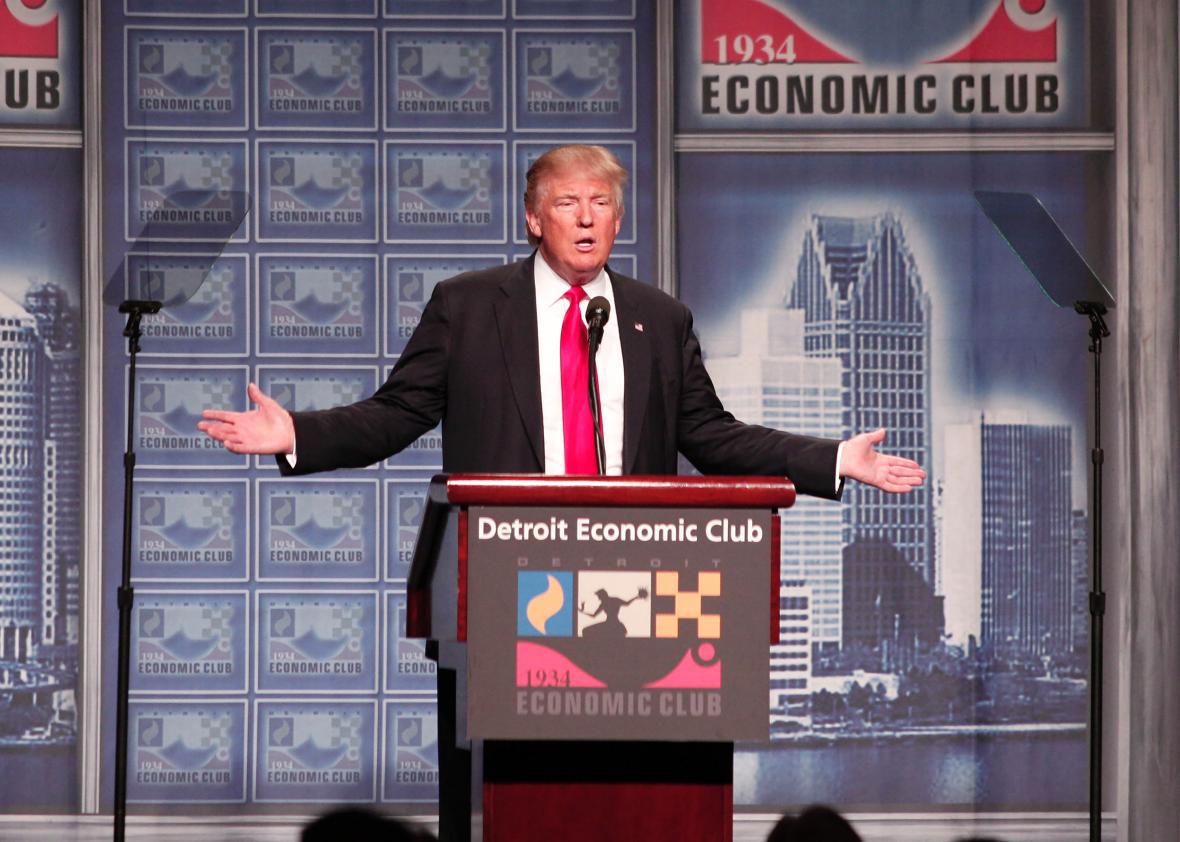Donald Trump’s newly announced child care proposal, which would fail to help low-income families, has already been deemed a bust. But how Donald Trump talked about his child care proposal is a win, particularly for working women.
Despite the fact that the majority of mothers now work, and the cost of child care, which is already prohibitively expensive, is rising faster than inflation, Republicans have long shied away from treating this as a problem desperately in need of a solution. This hesitance has been due to a combination of a dislike of government-spending along with an affinity for the conservative notion that moms should not work in order to be home with their children whenever possible. So to hear a Republican presidential nominee deliver a speech in which he proposes child care deductions as a way to “[offer] much-needed relief to American families”—without any hint of a moral judgement of working moms who rely on child care—is a definite kind of progress.
There was a moment in American history when affordable and widely available child care was not just possible, but nearly inevitable. In 1971, Congress passed a universal child care bill and President Nixon was very close to signing it, when conservative Pat Buchanan, then assistant to Nixon and future protector of America’s Christian soul, interfered. Nixon ultimately vetoed it, declaring the bill to be “a long leap into the dark,” and warning that passing it would “commit the vast moral authority of the National Government to the side of communal approaches to child rearing over against the family-centered approach.”
The notion that child care is a threat to the natural order—dad works, mom stays home— persisted, showing up in Republican attitudes during the 1990s when Bill Clinton was trying to push his child care initiative. “We’re concerned the president’s proposal reflects a bias against the more traditional American family, where one spouse remains at home for child-care purposes,” California Rep. Frank Riggs said at the time. Republicans believed that the real problem was the tax burden, and if they could only lower taxes more mothers would be financially able to stay home with their children. All this took place just a year after Republican vice-presidential nominee Mike Pence argued, in 1997, that “day-care kids get the short end of the emotional stick” and that households in which both parents work lead to “stunted emotional growth.” Fifteen years later, during the 2012 presidential race, Mitt Romney offered a slightly more palatable version of essentially the same sentiment when he declared: “It’s an advantage to have two parents, but to have one parent to stay closely connected and at home during those early years of education can be very, very important.”
Research suggests that our failure to achieve a universal child care policy may have more to do with religiously formed cultural assumptions than progressives’ ability to get legislation passed or women’s participation in the work force. In her 2006 book Working Mothers and the Welfare State, Kimberly J. Morgan shows how in countries like France and Sweden, where the secular state has more power than religious authorities, the government has been more active in shaping family policy. But in nations where organized religion holds more political sway, like the Netherlands and the United States, religious forces have successfully resisted a government policy that acknowledges shifting gender roles.
Indeed, Americans remain wary of the working mom. According to a 2013 Pew study, a third of us believe that mothers who don’t work are best for their children, and just 16 percent of us believe that a mother who works full time is ideal. But what do moms think? A growing number say working full-time would be ideal for them, while a shrinking number say they would prefer to not work at all. Dads have also evolved on the subject, and fewer of them believe the ideal situation is to have a wife or partner who did not work at all than they did in the past. Some of this shift in attitude is likely the result of a growing body of research showing that children of two working parents not only do just fine, but “are higher achieving and have fewer behavioral problems than children whose moms are not employed.”
During the Republican primaries this year there was little talk of child care, a stark contrast to the Democratic primaries where both candidates tackled family issues. But despite the Republicans’ reluctance to talk about the problem, many of the party’s candidates actually had pretty decent records in promoting early childhood education. Trump’s ideas and experience on child care issues may not be better than theirs, but the way he talked about it is.
